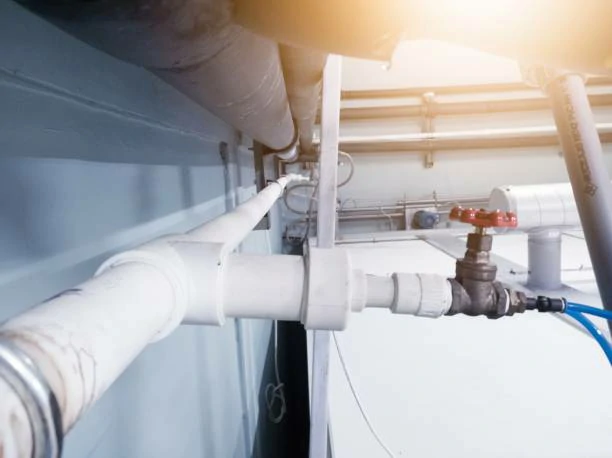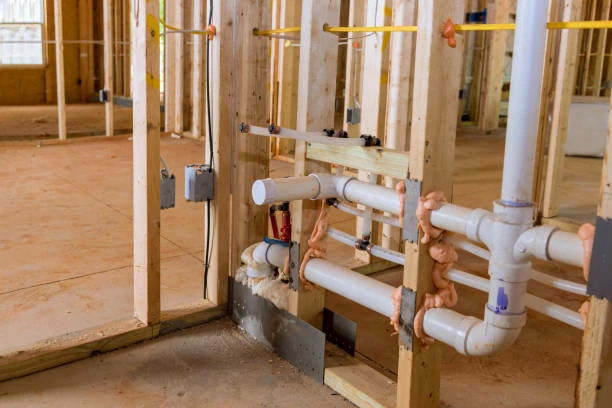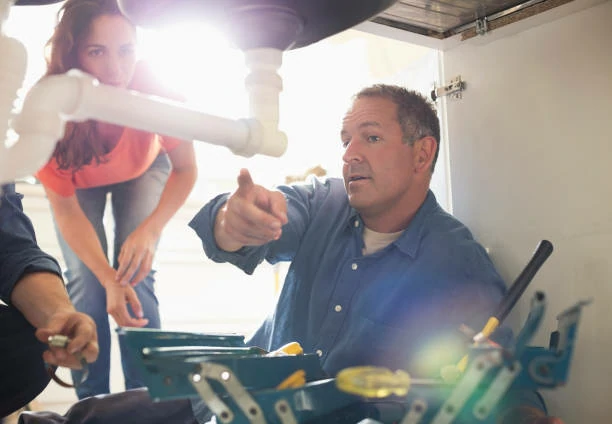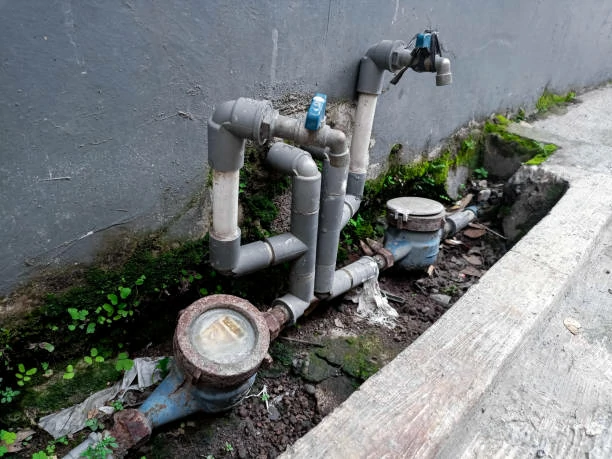Polyethylene (PE) fittings have become an essential component in many piping systems due to their outstanding chemical resistance. This quality makes PE fittings suitable for a wide range of applications, including water distribution, gas transportation, chemical processing, and industrial wastewater management. The chemical resistance of them ensures their longevity and reliability, even in harsh environments where other materials may fail. This article explores the various aspects of the chemical resistance of PE fittings, highlighting their advantages and applications in different industries.
Chemical Structure and Properties
The chemical resistance of them originates from the molecular structure of polyethylene itself. Polyethylene consists of long chains of ethylene molecules, which form a highly stable, non-polar structure. This molecular arrangement gives PE its resistance to a wide variety of chemicals, including acids, bases, salts, and organic solvents.
The non-polar nature of PE means that it does not react with most chemicals, preventing degradation or weakening of the material over time. Additionally, the high molecular weight of PE provides physical toughness, allowing the material to withstand mechanical stress without cracking or breaking down when exposed to corrosive substances.
The chemical properties of PE vary slightly depending on the specific type of polyethylene used. High-density polyethylene (HDPE) and cross-linked polyethylene (PEX) are particularly known for their enhanced chemical resistance. These materials are often chosen for applications where exposure to aggressive chemicals is expected.
Resistance to Acids and Bases
PE fittings excel in environments where exposure to acids and bases occurs. The non-polar structure of PE prevents it from reacting with both strong acids and strong bases, making it an ideal material for chemical processing plants, industrial wastewater systems, and agricultural applications.
In chemical processing plants, PE fittings handle the transport of acidic or alkaline solutions without corroding or degrading. This resistance ensures that the fittings maintain their integrity over time, preventing leaks or system failures. The use of them in these environments reduces maintenance costs and prolongs the lifespan of the piping system.
In agricultural applications, fertilizers and pesticides often contain strong acids or bases. PE fittings, with their ability to resist these chemicals, provide a reliable solution for irrigation systems. The fittings ensure that the chemicals do not cause damage, allowing for a consistent and efficient delivery of water and nutrients to crops.
Resistance to Organic Solvents
Organic solvents, including alcohols, ketones, and hydrocarbons, pose a significant challenge for many materials used in piping systems. However, PE fittings resist these chemicals effectively, making them suitable for a variety of industrial applications.
In the oil and gas industry, PE fittings often handle the transport of hydrocarbons, including crude oil, gasoline, and natural gas. The chemical resistance of PE prevents the fittings from dissolving or weakening when in contact with these solvents. This resistance ensures the safe and efficient transport of fuels, reducing the risk of leaks or spills.
The chemical industry also benefits from the use of them when dealing with organic solvents. In processes involving the transport or storage of alcohols, ketones, or other solvents, PE fittings provide a reliable and corrosion-resistant option. The use of PE in these environments ensures that the fittings maintain their structural integrity, even when exposed to aggressive solvents over long periods.
Resistance to Salts and Minerals
Salts and minerals, commonly found in water and industrial processes, can cause significant damage to piping systems if the wrong materials are used. PE fittings demonstrate excellent resistance to a wide range of salts and minerals, making them ideal for water treatment, desalination, and mining operations.
In water treatment plants, PE fittings handle the transport of both fresh and saline water without corroding. This resistance extends to the various chemicals used in the treatment process, such as chlorine and ferric chloride. PE fittings ensure that the treatment process remains efficient and contamination-free, contributing to the delivery of clean and safe water.
Desalination plants, which convert seawater into potable water, also rely on them for their resistance to salt and other minerals. The fittings withstand the harsh conditions of seawater, including high salinity levels and potential chemical additives used in the desalination process. PE’s chemical resistance ensures that the fittings do not degrade, allowing the plant to operate efficiently.
In mining operations, where water often contains high levels of dissolved minerals, PE fittings provide a reliable solution for transporting water and slurry mixtures. The resistance of PE to minerals ensures that the fittings remain intact, preventing blockages or failures in the system.
Longevity and Durability
The chemical resistance of them directly contributes to their longevity and durability in various applications. By resisting corrosion, degradation, and chemical reactions, PE fittings maintain their structural integrity over extended periods, even in harsh environments.
This longevity reduces the need for frequent replacements or repairs, which can be costly and time-consuming. In industrial settings, where downtime can result in significant financial losses, the durability of them provides a clear advantage. The use of chemically resistant PE fittings ensures that the system continues to operate smoothly, minimizing disruptions and maintaining productivity.
In addition to cost savings, the durability of contributes to environmental sustainability. By reducing the frequency of replacements, PE fittings minimize waste and the environmental impact associated with the production and disposal of piping materials. This sustainability makes PE fittings an attractive option for industries seeking to reduce their environmental footprint.
Versatility in Application
The chemical resistance of them makes them versatile and suitable for a wide range of applications across different industries. In addition to their use in chemical processing, water treatment, and oil and gas industries, PE fittings find applications in food and beverage processing, pharmaceuticals, and municipal infrastructure.
In the food and beverage industry, where sanitation and safety are paramount, PE fittings handle the transport of various liquids, including acidic juices, alcoholic beverages, and cleaning agents. The chemical resistance of PE ensures that the fittings do not contaminate the products, maintaining the safety and quality of the food and beverages.
In pharmaceutical manufacturing, PE fittings provide a reliable solution for handling chemical reagents and solvents used in drug production. The resistance to a broad spectrum of chemicals ensures that the fittings do not react with the substances, maintaining the purity and efficacy of the pharmaceutical products.
Municipal infrastructure, including sewage systems and stormwater management, also benefits from the chemical resistance of PE fittings. The ability to withstand a variety of chemicals and waste materials ensures that the piping system remains functional and efficient, even in challenging conditions.
Best PE Fittings Manufacturers
| Company Name | Headquarter/Location | Year Founded |
| IFAN | ZhuJi,China | 1993 |
| Celanese Corporation | Irving, Texas, in the United States | 1921 |
| Dow | Midland, Michigan, in the United States | 1897 |
| JM Eagle | Livingston, New Jersey | 1982 |
| Cresline Plastic Pipe Co inc | Mechanicsburg, Pennsylvania, Council Bluffs, Iowa, Corsicana, Texas | 1949 |
Conclusion
PE fittings offer chemical resistance, making them invaluable in various industries and applications. They handle acids and bases effectively in chemical processing. They resist organic solvents, ensuring durability in the oil and gas industry. Their resistance to salts and minerals provides long-term performance. This reduces the need for costly repairs or replacements.
The versatility of PE fittings, combined with their chemical resistance, allows them to excel in diverse environments. They perform well in industrial plants and municipal infrastructure. This resistance extends the fittings’ lifespan, enhancing overall system efficiency and sustainability. PE fittings remain a top choice for industries seeking performance and environmental benefits.
Contact
IFAN is a professional manufacturer with 30 years of experience, dedicated to producing high-quality plastic pipes, fittings, and valves. Our products include brass valves, PPR valves, as well as various pipes and fittings to meet different customer needs. Whether you need plumbing and drainage pipes or valve products, IFAN can provide a diverse range of high-quality, cost-effective products to support your projects. Below is our contact information.
We will reply your email or fax within 24 hours.
You can call us at any time if there is any question on our production.
For more information,pls visit our webside https://www.ifanplus.com/
Pls Mailto: [email protected]
Whatsapp: + 86 19857948982






